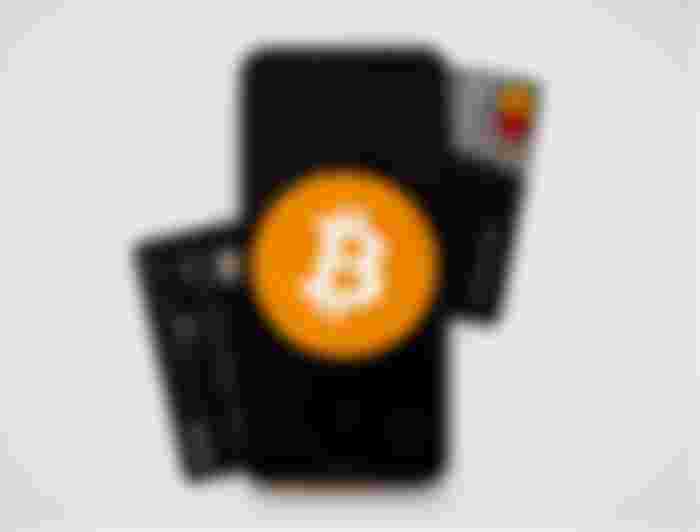News about Mt. Gox Cause fear in the crypto market
News about Mt. Gox Cause fear in the crypto market
In total, the bankrupt company holds about 142,000 bitcoins, the same amount in Bitcoin Cash (BCH) and nearly 70 million yen, Japan's currency. Such amount is scheduled to fall into the account of the injured users in the next few days after eight years of dispute.

In February 2014, the cryptocurrency industry was marked by one of the biggest robberies in history. On the date, the Mt. Gox declared bankruptcy after losing 850,000 bitcoins from its customers in an alleged hack.
Worth around $70 million, today that 850,000 BTC is equivalent to $18.3 billion even with the recent market crash. However, the point that is scaring the market is the bitcoins that were held by Mt. Gox after what happened.
In total, the bankrupt company holds around 142,000 bitcoins, the same amount in Bitcoin Cash (BCH) and nearly 70 million yen, Japan's currency. Such amount is scheduled to fall into the account of the injured users in the next few days after eight years of dispute.
BRL 15 billion in bitcoin can be distributed by the end of the month
Valuing 3,500% in recent years, these ~142,000 disputed bitcoins will be distributed to former Mt. Gox soon. According to the company's document, updated in July, repayment will begin at the "end of August of this year", that is, in the next few days.
Although these remaining bitcoins in the Mt. Gox were not worth much at the time, today they are worth more than 3 billion dollars (R$ 15.3 billion), and can be considered as a good reward for those who have waited for a decision for more than eight years.
Therefore, the “ghost of Mt. Gox” has returned to haunt the market. After all, many expect that most of the injured will dump their bitcoins on the market as soon as they get their hands on them.
Some believe that last week's drop — from $25,000 to $21,000 — was caused by fear of this eviction. However, it is worth noting that miners are pushing the price of bitcoin with mass sales. Furthermore, bearish sentiment still reigns only from bitcoin’s slight rally over the past couple of months.
Divided opinions on what investors will do with their bitcoins
On the other hand, big names in the industry believe that these investors will not sell their coins right away. Changpeng Zhao, CEO of Binance, argues that Bitcoin was worth $200 at the time and that such people have a different mindset, for example.
Anyway, it's been eight long years of waiting. Therefore, we can expect a small sale, at least to buy a glass of champagne or an expensive cigar to celebrate the entry of some bitcoins in their wallets.
Finally, the biggest lesson here is about the safety of your funds. Unless you are a trader and need to entrust your coins to a third party, the recommendation is to keep them in your own custody, avoiding spending almost a decade waiting for a resolution to receive just a fraction of your initial investment.
In addition, Mt. Gox was also given the option of not receiving such a refund. That is, they can prolong their legal battle to try to recover larger amounts in the future.

These Bitcoins are from investors/speculators who entered the market in 2013/2014 or earlier. This means that they are from individuals who have waited more than 8 years, while following the entire development of Bitcoin in this period. Have these people not experienced enough to know the potential of Bitcoin after several attacks, FUDs, Bear Markets, and others?
According to some polls made on the internet (and here it lacks statistical rigor), most of these individuals want to get their Bitcoin back and not their FIAT back.
Here we can even speculate that more than half of the individuals who will be able to receive Bitcoin by the end of the year intend to sell 0%. Even so, we still have about 30% that will be able to sell half or all of what they receive.
Which goes back to the question in point 1, would these customers sell during the down period?
In fact, we have no way of knowing exactly how many people will sell when they get paid, let alone the date they could sell.
But the rumors about Mt Gox have been on the market for over 8 years, the FUD generated by the unlock has already been experienced several times. Now the risk is real and should not be ignored. Many of these Bitcoins can in fact be sold, as these investors already accumulate high returns.
In my view, other more immediate catalysts can bring more selling pressure to the market. We recently had the result of North American inflation, for example.
Therefore, it is more beneficial to observe the global factors at this moment and, in case you are still worried about the possible “dump” that may occur after the release of these Bitcoins, I leave in this link an alarm already configured on the CryptoQuant platform so that you are warned when any movement begins to occur on the current balance sheet in Mt Gox's portfolios.

Mt. Gox, the biggest hacker attack in the history of Bitcoin, which bankrupted one of the biggest exchanges at the time, leaving thousands of users without access to their funds. Then, we will address the case of Silk Road, the largest marketplace for illicit substances, and other products of the same characteristic, that ever existed.
The biggest hacker attack in the history of Bitcoin
In July 2010, Jed McCaleb announced the launch of Mt. Gox, a new bitcoin exchange. In the timeline, the launch took place shortly after the first pricing of bitcoin, from transactions between enthusiasts. Jed was relatively well-known in the entrepreneurial world for having created eDonkey, a site known for freely sharing documents and files online. Additionally, Mt. Gox was originally created as a card trading platform for the game Magic The Gathering.
By developing a personal interest in Bitcoin and not seeing much traction in his project, Jed took advantage of the infrastructure developed to change the course of the business and create the exchange that would become the largest in the world until then. However, Jed had sold his project to a French programmer named Mark Karpelès just months after the brokerage gained traction in March 2011.
Its rapid growth not only caught the attention of Mark, but also of hackers, attracted by the huge circulation of bitcoins on the platform, which did not have the security or compliance infrastructure that would be essential today. The combination of these factors was the perfect storm so that on June 19, 2011, when bitcoin was trading at around $17.50, Mt. Gox was hacked. More than 4,000 bitcoins from around 600 different user wallets were lost after the attack.
The attack began when hackers gained access to the credentials of an auditor who worked for the brokerage. With credentials in hand, the next step was to compromise access to a Mt. Gox, who would have the necessary permissions, erroneously, to create numerous false sales orders. The price of bitcoin was taken from $17.50 to $0.01 in about 30 minutes.
When the scam was identified, the exchange had its operations paused for 7 days, in order to correct the flaws that allowed the situation and to try to reverse the fraudulent transactions. However, a copy of the broker's database was leaked and customer data was made accessible to hackers, thus completing the scam by sending funds out of the brokerage.
Despite the attempt to fix flaws, the exchange's system, originally created for a less complex purpose, suffered a series of failures and attacks over the course of a few years. In one of these, more than 2,600 bitcoins were lost after a code error sent them to an invalid address. Even so, Mt. Gox remained the leader in volume traded for a long time.
In May 2013, the exchange opened a bank account with Wells Fargo, a major American financial institution. With its stabilization on American soil and the consequent exposure of its data to the government, the company came under investigation by the US Department of Security on suspicion of violating brokerage and money transfer laws. Nearly $3 million from a subsidiary's account, which was used to process payments between US customers, was seized in the investigation process. As a result, uncertainty about the legality of trading through bitcoins and about the suitability of the brokerage increased.
The ultimate failure of the exchange began to be known and measured when, in February 2014, withdrawals were blocked to all customers of the platform. The broker claimed that a security hole in a protocol had been exploited by hackers. Already without the ability to make withdrawals, the more than 25 thousand customers of the platform were surprised by the deactivation of all the functions of the site.
The considerably long history of Mt. Gox, when taking into account the development flaws that the platform presented, was marked by the loss of about 850 thousand bitcoins, with an estimated value of about 500 million dollars at the time.
The story has developments to this day, as not all client assets were in the custody of the brokerage. The share of lost bitcoins is valued at nearly $3.5 billion at today's prices.


